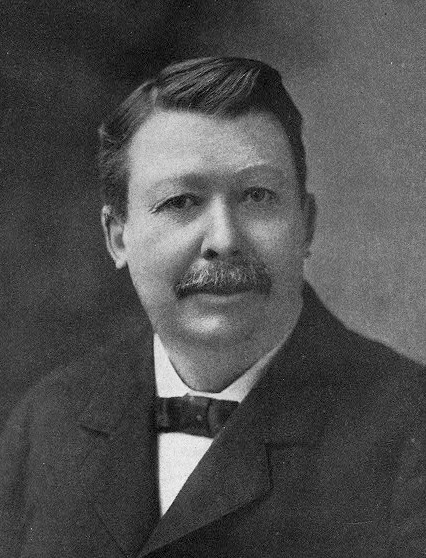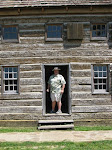Today is the birthday of the beloved Georgia journalist and writer, Joel Chandler Harris. He was born in Eatonton in 1845 and raised by his single mother and other benefactors to love reading, writing, and humor. At sixteen he was employed at the nearby Turnwold Plantation as a print setter for what was likely the nation's only plantation newspaper, The Countryman. Under the guidance of owner Joseph Addison Turner, Harris read from the plantation's large library over the a period of four years. He also observed life on the plantation including its rich culture of oral traditions among the slaves.

After a decade of employment with several papers in central Georgia and Savannah, Harris joined the staff of the Atlanta Constitution in 1876. It was here that he linked a Lippincott's article on black folklore to his Turnwold Plantation experience and the Uncle Remus character he had created for his feature writing. The rest was history, described here in R. Bruce Bickley's Georgia Encyclopedia article on Harris:
For the next quarter-century, Harris lived a double life professionally. He was one of two associate editors of the premier newspaper in the Southeast, helping readers interpret the complex New South movement. He was also the creative writer, the "other fellow," as he termed himself: a prolific, committed, and ambitious re-creator of folk stories, a literary comedian, fiction writer, and author of children's books. Harris published thirty-five books in his lifetime, in addition to writing thousands of articles for the Constitution over a twenty-four-year period. Along with his first book, Uncle Remus: His Songs and His Sayings, the most ambitious of the Uncle Remus volumes is Nights with Uncle Remus: Myths and Legends of the Old Plantation (1883). This book comprises seventy-one tales that feature stories told by four different black narrators, including Uncle Remus.
. . .
Harris also left his impact on major literary figures to come. Rudyard Kipling, Zora Neale Hurston, William Faulkner, Flannery O'Connor, Ralph Ellison, and Toni Morrison all responded to the legacy of Brer Rabbit and the tar baby that Harris had helped popularize. Fellow Eatonton writer Alice Walker protested, however, that Harris had stolen her African American folklore heritage and had made it a white man's publishing commodity.
. . .
Harris died on July 3, 1908, of acute nephritis and was buried in Westview Cemetery, West End, Atlanta. Obituary writers were not exaggerating when they eulogized this celebrated middle Georgia writer as "the most beloved man in America." Only Harris's friend and admirer, Mark Twain, who died two years later, surpassed Harris in popular reputation at the beginning of the twentieth century. Harris's retelling of the story of Brer Rabbit and the tar baby remains one of the world's best-known folktales, and his complex legacy as a literary comedian, New South journalist, folklorist, fiction writer, and children's author continues to influence modern culture in a surprising number of ways.
As noted in the quotation, Harris's place in the history of folklore is not without its controversy. Historically there has always been a struggle in the sphere of anthropological studies with cultural preservation and destruction as well as ownership. In Harris we have a written legacy from black oral tradition as viewed though the author's personal lens. It isn't perfect but it does preserve universal themes and lessons in their cultural context. Furthermore his work in part inspired a resurgence of interest in storytelling and performance in a number of cultural niches. If anything that interest is far stronger today than it was a century ago and much of it under black ownership. I can certainly encourage and appreciate that as well as Harris's contribution.
Sources
Text:
R. Bruce Bickley, Joel Chandler Harris, Georgia Encyclopedia, georgiaencyclopedia,org

No comments:
Post a Comment